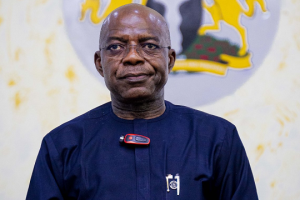
A. Introduction:
Nigeria currently has one of the worst health indices in Africa amidst a young vibrant population. Our health system is currently can be best be conceptualized as an inverted pyramid, with the few educated and wealthiest forming the narrow apex of the inverted pyramid.
These have robust health indices comparable to others in Africa countries with advanced health sector, while the wide apex of the inverted pyramid is populated by the poor and those in the rural areas, with poor access to good health care services.
B. Purpose:
The Healthcare,Citizen Wellbeing and Housing Cluster held a virtual mini-summit on 20th of December, 2023. The discourse was centered on immediate and short-term policy recommendations that will assist the government’s efforts to reposition the healthcare sector.
Our health outcomes and health financing are worse than other African countries with similar or lower income levels, which has huge implications for human capital and economic development. Nigeria ranks low in prioritizing human capital investment.
This lack of, or poor investment in human capital needs to be radically improved if we aim to improve the three main human capital outcomes that contributes to productivity: survival, education and health. Not investing in human capital has very serious consequences on the overall health of the economy.
Health is wealth, and making a large proportion of our citizens healthy will significantly power the PBAT’s administration effort to grow our economy to a one trillion dollars GDP within the next four years. Our recommendations are carefully structured to support current efforts and initiatives on how to improve our health outcomes by restructuring and repositioning the current inverted health system pyramid.
C. Policy Recommendation:
- One Zone One Worldclass Health Facility – recommend the establishment of world-class tertiary and specialized healthcare centers in each geopolitical zone, initial steps should focus towards improved
healthcare infrastructure and reversing medical tourism.
2.Traditional,Complimentary and Alternative Medicines – concrete and time bounds efforts for the development, standardization and regulation of traditional, complementary and alternative medicines
in all states of the federation are needed.
- Alternative Sustainable Funding Strategies: Propose alternative funding sources, including discriminatory taxes on the wealthy, tobacco, alcohol, sugar; and facilitation of low-interest, long-term
loans for health infrastructure development by the private sector. - Community-based healthcare system – advocating for the adoption of a community based health care system that can be integrated and incorporated into the NHIA, leveraging on our over 34,000 PHC units all over the country, with potentials to double the PHC units over a period of four years.
This will ensure robust community ownership and funding of the PHCs, guarantee ease access to essential and high-quality health services, as well as to safe, effective and affordable medicines and vaccines, while ensuring financial sustainability and substantially minimize out of pocket health care expenses.
- Local manufacture of vaccines and drugs – close to 90% of drugs in the county are imported and we do
not produce Active Pharmaceutical Ingredients (API). It is necessary therefore to invest in local pharmaceutical industries to boost production of common drugs in Nigeria. All pharmacy departments in
our university to imitate Obafemi Awolowo Uuniversity,Ile-Ife and have Village Chemist where drugs are manufactured and sold to public. - PHC-led sector restructuring: Leverage Primary Healthcare (PHC) to restructure and strengthen the health sector effectively aiming to double the PHC units within four years. The moribund primary and secondary
schools Health Program (including School Feeding) Policy should be revived and repositioned as an important component of our PHC system. - NHIA Coverage Expansion – propose expanding NHIA coverage to include generic medications for all health conditions without exception, cancer screening and treatment.
D. Responsibilities:
The following parties have responsibilities in implementing this policy:
The Federal, State, and LG governments should be jointly responsible for providing the necessary funding and resources involving the organized private sector.
The community is responsible for creating a supportive environment and to be encouraged to be partowners of ventures in their locality.
E. Enforcement
The Ministries of Health and Citizen Wellbeing, Humanitarian Affairs and Poverty Alleviation, Education and Women Affairs will monitor/coordinate the implementation of this policy and will take appropriate
action(s) when necessary.
Prepared and Presented by
Prof Isaac Adewole
Chair, Healthcare & Citizen Wellbeing Cluster
Dr Abiola Oshodi
Secretary, Healthcare & Citizen Wellbeing Cluster





